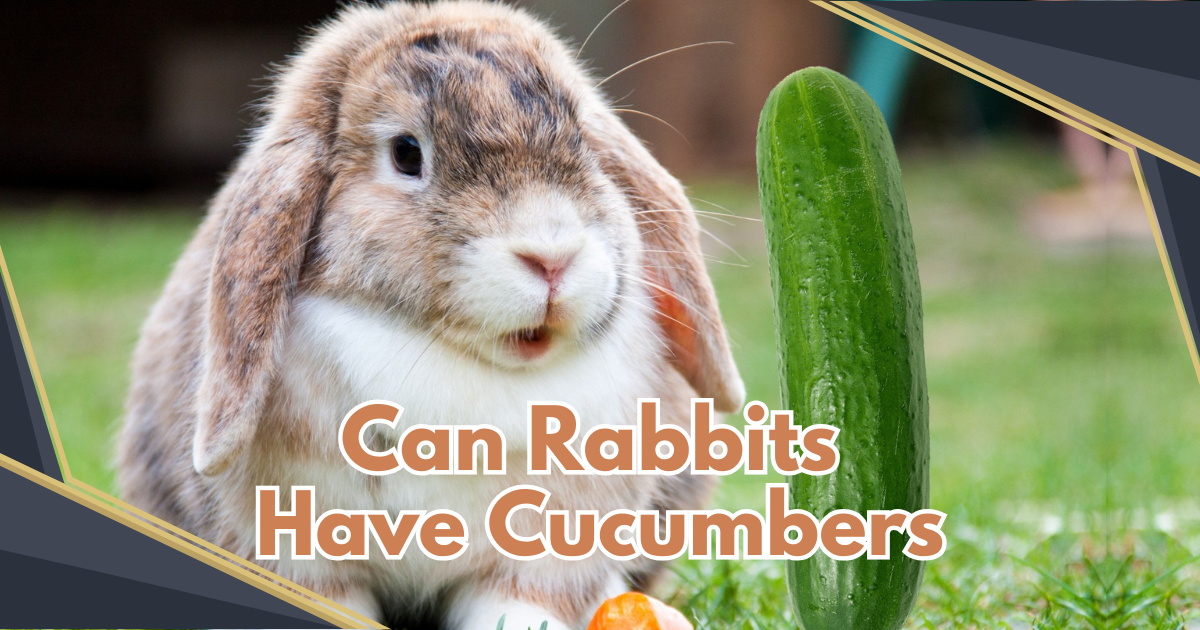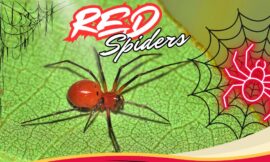When it comes to feeding your rabbit, it’s essential to understand which foods are safe and nutritious for your furry friend. Rabbits have sensitive digestive systems, so knowing what foods can benefit them and which ones can harm them is vital for their well-being. Cucumbers are a common vegetable found in many households, but can rabbits have cucumbers? In this article, we’ll explore whether cucumbers are safe for rabbits, how to feed them, and the best ways to incorporate this hydrating vegetable into your bunny’s diet.
Can Rabbits Have Cucumbers? A Simple Answer
Yes, rabbits can have cucumbers, but they should be given in moderation. Cucumbers are generally safe for rabbits, as they are low in calories and provide a good source of water, which helps keep your rabbit hydrated. However, cucumbers should only be given as an occasional treat and not as a primary food source. While they contain beneficial nutrients, cucumbers lack the fiber that rabbits need for healthy digestion.
Cucumbers can be a refreshing snack, especially during hot weather, but the bulk of a rabbit’s diet should consist of hay, leafy greens, and rabbit pellets. Cucumbers should only be offered as a small addition to a well-balanced diet.
Health Benefits of Cucumber for Rabbits
Cucumbers offer several health benefits for rabbits when fed in the correct portions. Although they aren’t nutritionally dense like other vegetables, cucumbers provide some essential vitamins and hydration. Here’s how cucumbers can benefit your rabbit:
- Hydration: Cucumbers are made up of about 95% water, which helps keep your rabbit hydrated, particularly in warm weather.
- Low Calories: Cucumbers are low in calories and fat, making them a light treat that won’t contribute to weight gain if fed in moderation.
- Vitamins and Minerals: Cucumbers contain small amounts of vitamins like Vitamin C and Vitamin K, as well as potassium, which can support overall health.
- Digestive Support: While cucumbers don’t have a high fiber content, they can provide a little extra moisture to help with digestion, especially if your rabbit isn’t drinking enough water.
However, it’s essential to remember that the nutritional value of cucumbers is minimal compared to other veggies like leafy greens or carrots. Cucumbers are best viewed as a refreshing snack, not a primary source of nutrients.
Is Cucumber Safe for Rabbits? Potential Risks and Considerations
Although cucumbers are generally safe for rabbits, there are a few potential risks and considerations to keep in mind:
1. Overfeeding Can Cause Digestive Issues
Rabbits have sensitive digestive systems that rely on a high-fiber diet. Since cucumbers are low in fiber, overfeeding them can lead to digestive issues like diarrhea or bloating. Always introduce cucumbers slowly and in small portions to see how your rabbit responds.
2. Avoid Cucumber Seeds and Peels
While the flesh of the cucumber is safe, it’s best to avoid feeding your rabbit the seeds or peels. The seeds can be difficult for your rabbit to digest, and the peel may contain pesticides or chemicals if not washed thoroughly. If you’re feeding organic cucumbers, peeling is still recommended to avoid potential digestive irritation.
3. Balance with Other Vegetables
Since cucumbers don’t offer much nutritional value on their own, it’s essential to balance them with more nutrient-dense vegetables like spinach, kale, or romaine lettuce. This ensures that your rabbit is getting the necessary vitamins, minerals, and fiber for optimal health.
How Much Cucumber Can Rabbits Eat? Portion Control and Guidelines
Knowing how much cucumber to feed your rabbit is key to keeping them healthy. As a general rule, cucumbers should be an occasional treat, not a staple in their diet. Here are some guidelines for feeding cucumbers to rabbits:
- Small Portions: Feed your rabbit small slices of cucumber, about 1-2 thin slices per serving, no more than 2-3 times per week.
- Watch for Reactions: If your rabbit shows any signs of digestive upset, such as diarrhea or lethargy, discontinue cucumber and monitor their health.
- Limit Treats: Treats like cucumbers should only make up around 10% of your rabbit’s diet. The rest should consist of hay, leafy greens, and pellets.
Remember to always introduce new foods gradually to avoid overwhelming your rabbit’s digestive system.
Can Baby Rabbits Eat Cucumbers? Age-Specific Considerations
When it comes to feeding baby rabbits, caution is necessary. Young rabbits under the age of 12 weeks have especially sensitive digestive systems, and introducing vegetables too early can cause stomach issues. For this reason, baby rabbits should not eat cucumbers until they are older and their digestive systems are more developed.
Once your rabbit reaches 12 weeks of age, you can start introducing small amounts of fresh vegetables into their diet. Begin with more fiber-rich greens like romaine lettuce or parsley before moving on to cucumbers. Always consult your veterinarian before making significant changes to your rabbit’s diet, especially for younger rabbits.
Best Vegetables for Rabbits: Where Does Cucumber Rank?
While cucumbers can be a safe treat for rabbits, other vegetables provide more nutritional value and should make up a larger part of your rabbit’s diet. Here’s a quick look at the best vegetables for rabbits and where cucumbers rank:
1. Leafy Greens (Top Choice)
Vegetables like romaine lettuce, kale, spinach, and parsley are high in fiber and essential nutrients. These should be the primary vegetables in your rabbit’s diet, as they offer the most health benefits.
2. Carrots (In Moderation)
While carrots are a favorite treat for rabbits, they are high in sugar and should be given sparingly. Carrots can be fed a couple of times a week as a treat.
3. Cucumbers (Occasional Treat)
As mentioned earlier, cucumbers rank lower on the nutritional scale but are safe for rabbits in moderation. Use them as a refreshing snack, particularly in warm weather.
4. Bell Peppers
Bell peppers are another good option, as they are rich in vitamins but low in sugar and calories. You can feed small slices of bell peppers alongside other vegetables.
5. Zucchini
Similar to cucumbers, zucchini is low in calories and provides a hydrating treat. Like cucumbers, it should be offered in moderation.
In conclusion, while cucumbers are safe, they should be viewed as an occasional snack rather than a core part of your rabbit’s diet. Leafy greens remain the healthiest vegetable choice for your rabbit.
Can Rabbits Eat Cooked Cucumbers?
While cucumbers are safe for rabbits in their raw form, cooked cucumbers are not recommended for your rabbit’s diet. Rabbits have a delicate digestive system that is best suited to raw, fresh foods. Cooking cucumbers changes their texture and nutrient composition, which can make it harder for your rabbit to digest them. The heat from cooking also removes some of the natural water content, which is one of the primary benefits of feeding cucumbers to rabbits. To ensure your rabbit stays healthy, it’s best to stick to raw cucumbers as an occasional treat.
How to Introduce Cucumbers to Your Rabbit’s Diet
Introducing cucumbers to your rabbit’s diet requires a gradual approach. Start by offering a small slice and monitor your rabbit for any signs of digestive discomfort, such as diarrhea or gas. If your rabbit handles the cucumber well, you can gradually increase the amount over time, but remember to keep the portions small. Always wash cucumbers thoroughly to remove any pesticides or chemicals before feeding, and avoid feeding cucumber peels and seeds to minimize digestive issues.
For more exciting blogs, visit our homepage Magzineco.
FAQs About Feeding Cucumbers to Rabbits
- Can rabbits eat cucumber peels?
- It’s best to avoid feeding cucumber peels to rabbits. The peels may contain pesticides or chemicals, even if thoroughly washed. Stick to the flesh of the cucumber.
- Can baby rabbits have cucumbers?
- No, baby rabbits should not have cucumbers. It’s better to introduce cucumbers only after your rabbit is at least 12 weeks old.
- Is cucumber safe for rabbits every day?
- No, cucumbers should only be given in moderation, around 1-2 times a week. Feeding them daily could upset your rabbit’s digestive system.
- Can rabbits eat cucumber seeds?
- Avoid cucumber seeds, as they can be hard for rabbits to digest. Always remove the seeds before feeding cucumbers to your rabbit.
- What vegetables are better than cucumbers for rabbits?
- Leafy greens like kale, romaine lettuce, spinach, and parsley are more nutritious and should make up the majority of your rabbit’s vegetable intake.
- How much cucumber can I give my rabbit?
- Offer small slices (1-2 thin slices) at a time, no more than 2-3 times per week.
- Can rabbits eat other parts of the cucumber plant, like the leaves or stems?
- It’s best to avoid feeding the leaves or stems of the cucumber plant, as these parts have not been widely studied for rabbit safety.
- Why does my rabbit have diarrhea after eating cucumbers?
- Overfeeding cucumbers, or introducing them too quickly, can cause diarrhea. Reduce or eliminate cucumbers from your rabbit’s diet if this occurs.
- Is cucumber a good option for hydration?
- Yes, cucumbers are made of about 95% water, making them a good hydrating treat for rabbits, especially in hot weather.
- Can rabbits eat zucchini as an alternative to cucumbers?
- Yes, zucchini is another low-calorie, hydrating vegetable that can be fed to rabbits in moderation.
Conclusion
In conclusion, rabbits can have cucumbers, but it’s essential to feed them in moderation and as part of a balanced diet. Cucumbers provide hydration and a light, low-calorie snack, but they should not replace the fiber-rich vegetables and hay that are essential to your rabbit’s health. By feeding cucumbers as an occasional treat, you can give your rabbit a refreshing snack without risking digestive issues. Always monitor your rabbit’s reaction to new foods, and consult your veterinarian if you have any concerns. With the right approach, cucumbers can be a safe and enjoyable addition to your rabbit’s diet!




